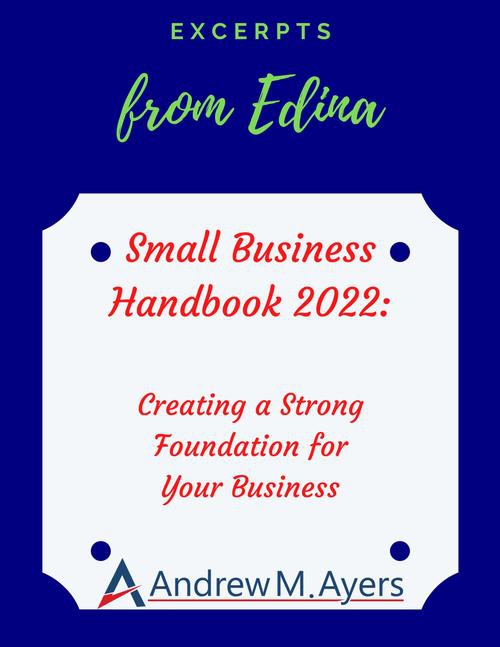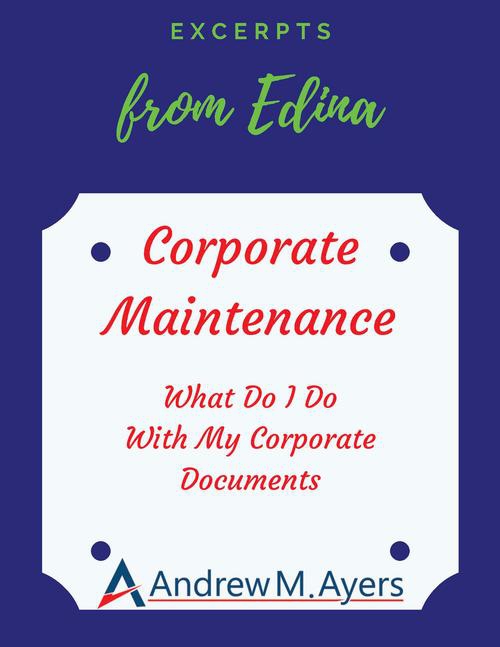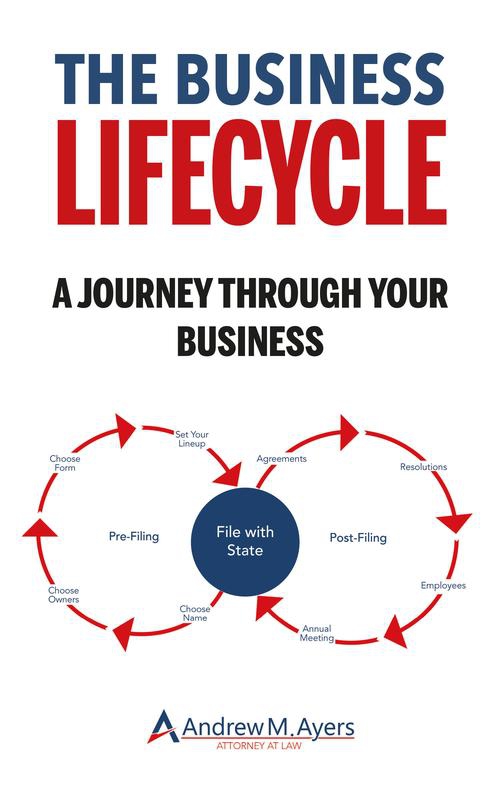Now that we've been through the initial steps of the Business Lifecycle, it will be important to speak to both an accountant and an attorney, because we're going to choose the form for your business.
Choosing the form means what kind of a legal entity your business is going to be. It's important that you check to see what your options are, as each state has different types of companies.
Sole Proprietorships
There is a sole proprietorship, which is going to be a company, but it’s just you. Oftentimes, you don't need to file separate operating agreements and filings with your state, you just operate as a sole proprietorship.
Partnerships
If you're going to have other owners involved with you, you can have what's called a general partnership. In fact, there are a variety of different partnerships that may be available to you, depending upon what state you're in. These partnerships can include a Limited Liability Partnership, which does just what it sounds like. It limits the liability of the partners from liabilities that they may face from outsiders or employees. There are limited partnerships, meaning that the partners have limited fiduciary duties to each other. And then there are family limited partnerships, where you have partnerships between family members. But once again, the partnership is limited to certain types of issues.
Corporations
If you're not looking to do a partnership, you can also do what's called a corporation. Now we're very familiar with corporations, they're often what you see in the news, the Apples and the Googles of the world. However, when you look at your corporation, this is where it's important to speak to an accountant.
There's two main types of corporations for you to consider. One is a "C" corporation, which is the default when you form a corporation. The other is an "S" corporation, which is not actually a separate type of corporation. It's a tax election that allows for certain tax treatment of your income, and the money you'll be able to earn as an owner of the company.
LLC’s
One of the most common corporate forms these days, and it's very popular because there have been a lot of books written about it, is the LLC, the limited liability corporation. Depending upon the state you're in, there will be different requirements for setting up an LLC.
Now before you jump, and say you want to have an LLC, this is important to speak to your attorney to find out what has to happen to form an LLC. For example, in New York, when you form your LLC, you have to publish the notice of the formation in the county where your LLC is going to be based. Now this may seem simple, however, it's a very different proposition if you're in Manhattan, versus if you're upstate, in one of the smaller counties.
So it's become a common trick in New York that you incorporate your LLC in a small, upstate county. And then you publish in the local newspaper there, which is much cheaper than publishing in Manhattan. And then down the road, you “move” your company to New York City. This is not something that is for the faint of heart. This is something where you want to make sure you have an accountant and an attorney on board helping you through this process so that you know it's done correctly.
Business Trusts
You can also form a Business Trust, which is a business being held in a trust. This is one of the ways in which business law and estate planning will overlap with each other. There are many requirements to make sure you’ve created a proper business trust, so make sure you consult a professional before trying to create one of these.
Professional Companies
Finally, you also want to look at professionally licensed entities. For example, my company is a P.C., a professional corporation. These professional entities are usually available to individuals and companies working in licensed fields, for example, doctors, lawyers, and engineers. So if you're in a licensed profession, you want to see what kind of professional entities are available to you.
Next Steps
If you're ready to choose your corporate form, or if you'd like to discuss further which one is best for you, let's set up a Legal Strategy Session and discuss your options. To explore more about your setting up your business, please download the Business Lifecycle report for more information.





